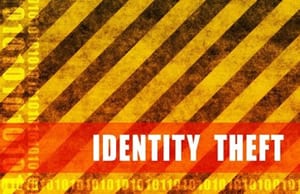 You should check your credit report three times a year to check for accuracy and identity theft. (Go through www.AnnualCreditReport.com) As a reader of my newsletter, you get reminder emails with instructions so you can protect your credit and financial information.
You should check your credit report three times a year to check for accuracy and identity theft. (Go through www.AnnualCreditReport.com) As a reader of my newsletter, you get reminder emails with instructions so you can protect your credit and financial information.
If you’re not worried, here are some identity theft statistics from www.StatisticBrain.com that will help set the mood.
| Identity Theft / Fraud Statistics | Data |
| Average number of U.S. identity fraud victims annually | 11,571,900 |
| Percent of U.S. households that reported some type of identity fraud | 7 % |
| Average financial loss per identity theft incident | $4,930 |
| Total financial loss attributed to identity theft in 2013 | $21 billion |
.
| Percent of Reported Identity Thefts by Type of Fraud | Percent Reported |
| Misuse of Existing Credit Card | 64.1 % |
| Misuse of Other Existing Bank Account | 35 % |
| Misuse of Personal Information | 14.2 % |
Has your identity been stolen? Here’s how to find out.
There are free or low cost reports in addition to your credit report that will help you prevent, and discover, identity theft. These are compiled by lesser known consumer reporting agencies and were created for specific industries. Just because they weren’t created to benefit you, doesn’t mean you can’t use them.
 For example, when you open a bank account with a new bank, they want to see your check writing history. Or, when you want to switch insurance companies, they want to see what claims you have filed. You can view those same reports to see if anyone has written checks or requested claims in your name. You can get a statement from your health insurance company once a year to compare to your information to what is on file. That means you may be able to catch medical identity theft early. Otherwise you wouldn’t know who is using your identity for medical theft until your insurance company declines a claim because they previously paid for it. You can do the same for prescriptions too.
For example, when you open a bank account with a new bank, they want to see your check writing history. Or, when you want to switch insurance companies, they want to see what claims you have filed. You can view those same reports to see if anyone has written checks or requested claims in your name. You can get a statement from your health insurance company once a year to compare to your information to what is on file. That means you may be able to catch medical identity theft early. Otherwise you wouldn’t know who is using your identity for medical theft until your insurance company declines a claim because they previously paid for it. You can do the same for prescriptions too.
The Fair Credit Reporting Act makes these reports available to you annually for a fee (some are free). To get a complete list of consumer reporting agencies and how to get your reports, go to ConsumerFinance.gov
There, you’ll find all kinds of reports, including check writing history, public records (criminal history, property ownership, liens, and bankruptcy), healthcare information, insurance claims, rental history, employment, etc.
It may sound like a lot of effort, but something may happen that makes you wonder. Did you lose your wallet? Did your roommate get arrested for theft? Did you recently get turned down for a loan when you thought your credit was good? Taking preventative steps is much easier than cleaning up after your identity is stolen.
Take some time and go through all the reports available to you and start with one at a time in the order that makes sense for you and your family.
Leave a Reply